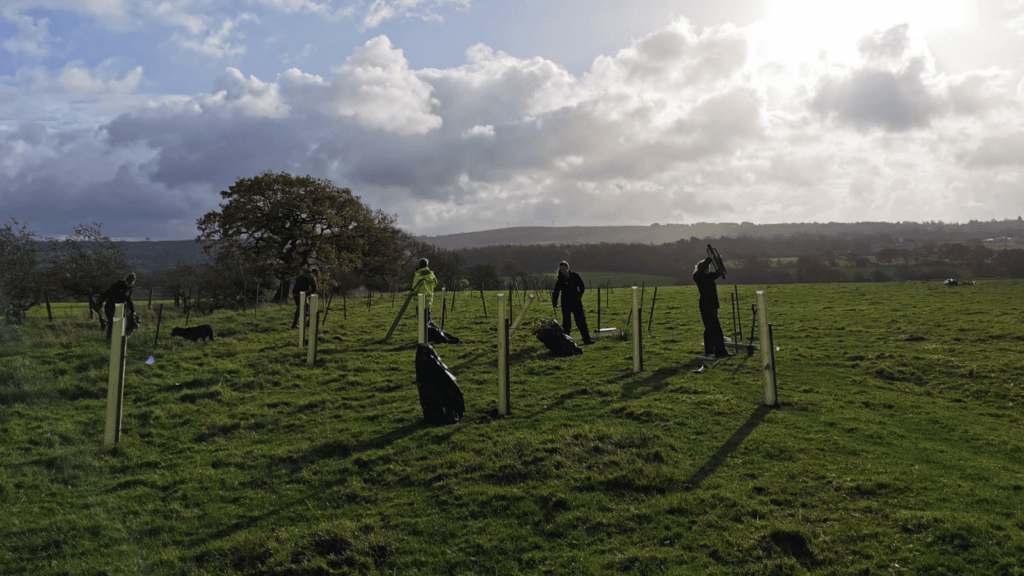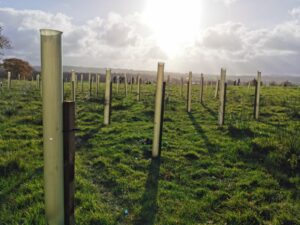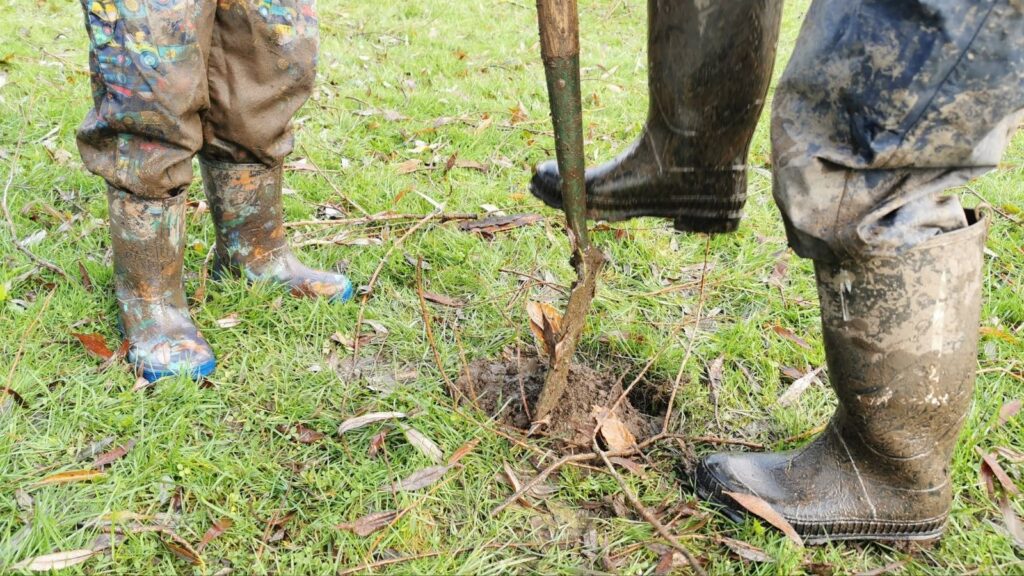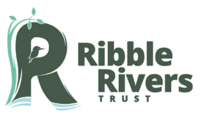Ribble Rivers Trust has begun a project to plant more than 11,000 new trees in Lancashire with the aim of improving water quality.

Ribble Rivers Trust has been funded by United Utilities to create new woodlands at Sabden, Samlesbury, and the Forest of Bowland as part of the company’s innovative Catchment Systems Thinking (CaST) approach which promotes a holistic approach to managing the company’s catchment land and water quality.
Covering nine hectares, these woodlands will form the first part of the Valuing Ribble’s Water Woods project.

The project will focus on reducing phosphate run-off into waterways. Not only does phosphate pollution cause harmful blue-green algal blooms, it can also reduce oxygen levels in the water affecting breathing in river dwelling animals.
The new trees will also provide shade and shelter for watercourses, homes for wildlife, and help to mitigate flood risk amongst other benefits.
By reducing phosphate in river catchments, this project will provide an additional benefit to United Utilities by reducing the amount of phosphate removal treatment required and in turn reduce the energy and carbon associated with this.
The clever bit
“Trees provide many benefits, from carbon capture to improving air quality for local communities, but it is often overlooked how much they benefit water; providing shade, slowing the flow and reducing nutrients that enter our rivers and streams. Working with partners we are seeking to substantially increase woodland cover in prioritised locations that provide the most benefit to people and wildlife.”
Jack Spees of Ribble Rivers Trust
What makes this project different is that both Ribble Rivers Trust and United Utilities are closely observing these sites to assess the effect the tree planting is having on water quality.
Before and after data is being gathered at all three woodlands to enable various metrics to be monitored and the benefits – and timescales for their delivery – to be better understood.
This will help both organisations develop future strategies for tree planting and whether it can be scaled up to deliver large scale, catchment-wide benefits to water quality and the wider environment.
“It’s great to see Ribble Rivers Trust making progress with this project thanks to funding from our CaST account. Driving nature-based solutions and the multiple benefits they can deliver is a key element of our Catchment Systems Thinking approach and woodland creation can play an important part in helping the eco-system in waterways. We look forward to seeing these woodlands flourishing in the years to come”
James Airton, Natural Capital Strategy and Planning Manager for United Utilities

Prior to the start of the project, water quality data was collected to provide a baseline. Ribble Rivers Trust will be collecting further data regularly over the coming years to build up a picture of how well the woodlands are working.
It is hoped that, in time, the project will show a reduction in phosphate levels in soils and watercourses and an increase in the variety and numbers of species calling these spaces their homes.
United Utilities’ innovative CaST approach, which looks at a river catchment as an entire system rather than a series of isolated issues, has already brought multiple benefits such as pollutant reduction and flood risk management along watercourses in Cumbria and Lancashire.

